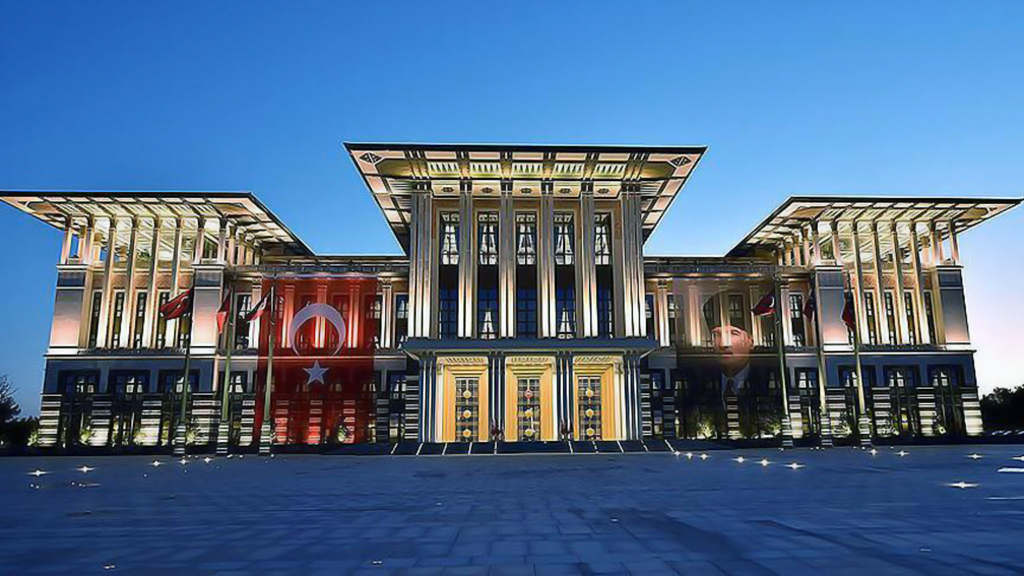
Turkey braced for accelerated system transformation
The global political economy is going through a turbulent period in which emerging powers such as Turkey are increasingly forced to monitor new conditions and produce fast and effective policy responses.
Share
Turkey's long wait for the paradigmatic transition to a presidential system will soon be over as the chairman of the ruling Justice and Development Party (AK Party), President Recep Tayyip Erdoğan, and Nationalist Movement Party (MHP) Chairman Devlet Bahçeli agreed to set for early elections on June 24. The transition from the existing patchwork parliamentary system to a more effective presidential system with a new set of executive and legislative checks and balances was already approved in a constitutional referendum on April 16, 2017. Therefore, the issue of state transformation as well as the formation of a new legal and institutional framework in accordance with presidential governance has been on the public agenda for at least a year. But still, the announcement from Erdoğan concerning early presidential and general elections in just two months' time was a largely unexpected development for the majority of observers of Turkish politics.
The element of surprise in this announcement principally stemmed from Erdoğan and his party's principles that stipulate that all general elections should be held regularly and as schedule for the sake of stability and predictability in the country. Throughout the 15-year interlude during which the AK Party practically formed a dominant party system in Turkey with successive election victories, calling early general elections was used only as a measure of last resort. But everything is qualitatively different this time around. The AK Party has formed a political alliance with the MHP, which will continue most probably even after the elections and constructively after the presidential system is implemented. Erdoğan and AK Party officials indicated on various occasions that they were determined to hold general elections on Nov. 3, 2019, as scheduled. But when Bahçeli publicly called for early elections in August this week, creating widespread anticipation in the public, the electoral clock had already started ticking. Therefore, Erdoğan embraced the challenge and, while contradicting his usual principles, declared early elections in order to preserve the strategic alliance and prevent the formation of potential uncertainties in domestic politics and economy.
Politically speaking, early elections will undoubtedly favor Erdoğan, as he represents by far the strongest candidate with estimated popular support at around 55 percent. The opposition parties are highly disorganized, devoid of any serious political rhetoric concerning the presidential system and have not even determined their candidates for the campaign. Therefore, it will be an uphill struggle for them from the beginning.
More importantly, however, Turkey's fragmented parliamentary system has fallen into an abyss following the constitutional referendum on the presidential system last year. Erdoğan took steps toward the construction of a strong and effective executive branch, but comprehensive legal and institutional reforms are needed to restructure the public administration, foreign policy making and economic governance architecture in line with the new system. As Turkey continues its critical military operation in Afrin in northern Syria and global fluctuations stemming from the U.S.-Russia rift and geopolitical risks in the region continue to challenge economic stability, delaying general elections further could have been a strategic mistake. Institutional reforms to update the Turkish state in line with the presidential system will probably take a long time, but early elections are bound to stimulate accelerated steps on this front. Projected reforms will eliminate the existing dualism between the prime ministry and presidency, enabling clearly defined areas of operational control and responsibility for bureaucratic bodies. Appointment of ministers from outside Parliament in the new system will also decrease the potential influence of local political networks on macro-level decisions, thereby increasing the room for technical input. Structural reforms in the management of the macroeconomy will gain speed, as well, since the decision for early elections eliminates the possibility of losing another year amid discussions of election economics. As soon as the elections are over, structural reforms related to fiscal discipline, industrial policy, technological modernization, energy efficiency and employment creation could continue at full speed.
The global political economy is going through a turbulent period in which emerging powers such as Turkey are increasingly forced to monitor new conditions and produce fast and effective policy responses. Therefore, any decision that helps to decrease uncertainty and empower administrative effectiveness will contribute to national competitive capacity. The presidential system will complete Turkey's institutional transformation into a fully fledged emerging power. Therefore, the sooner this system transformation is complete the better.
[Daily Sabah, 21 April 2018]
Tags »
Related Articles





